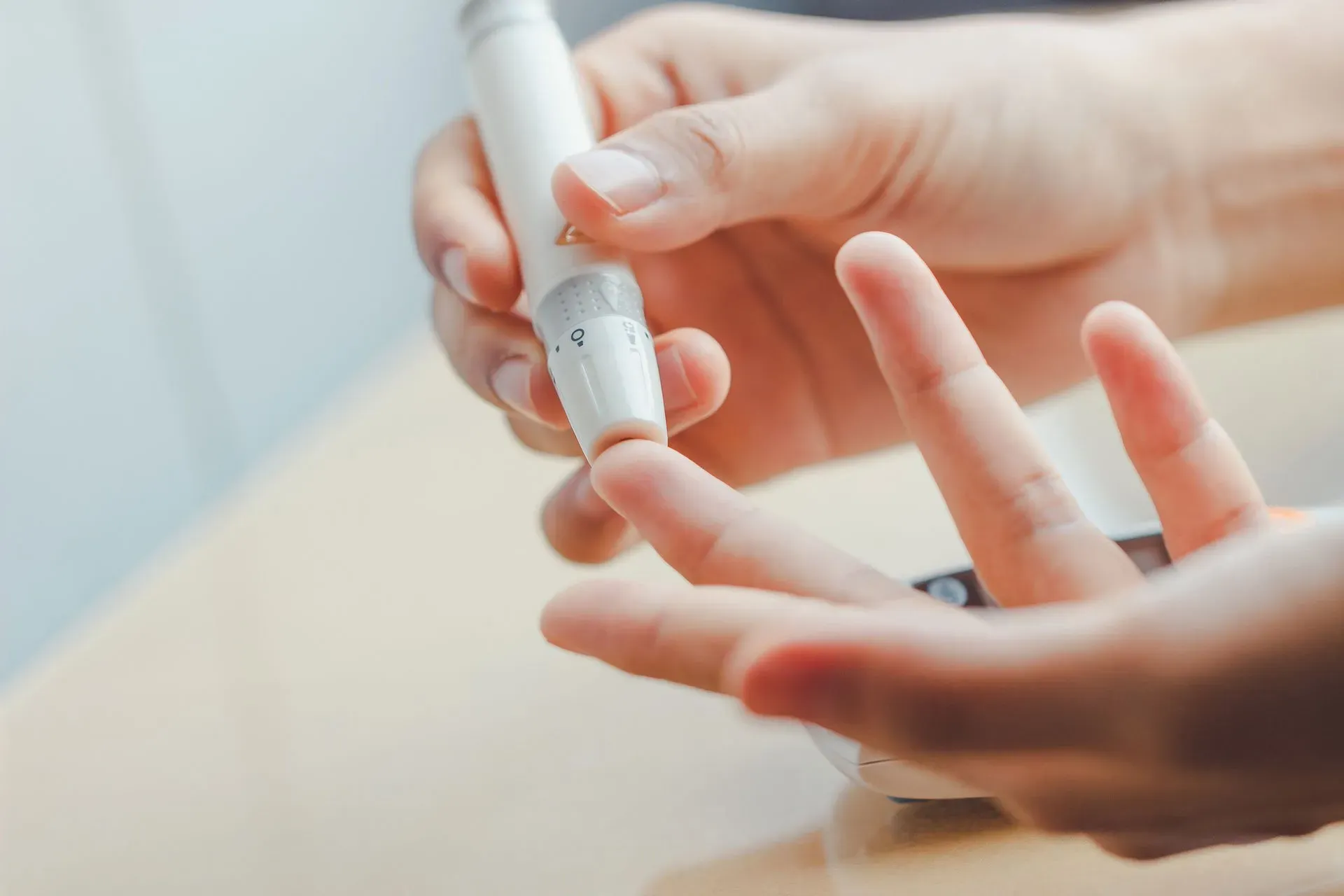Blood Sugar and Your Health: What You Should Know
Admin • June 19, 2020

The human body performs countless functions every day just to keep itself alive. Many of these functions involve the use of glucose (sugar) to fuel physical processes. However, when the level of sugar in your bloodstream goes out of control, you can experience everything from fainting spells to diabetes-related organ damage.
Just as drivers should understand some basic aspects of their vehicle's operation, you can benefit from knowing how blood sugar levels affect your health and what you can do to keep them under control. Here are some basic points to consider.
How Your Body Uses and Regulates Blood Sugar
Glucose serves as an energy source for many parts of the body, from muscles to major organs. The brain relies on glucose as its prime fuel for neurological function and thought processing. Your stomach and liver break down the foods you eat, releasing glucose into the bloodstream.
Under normal circumstances, your body uses a hormone called insulin to regulate the level of glucose in your bloodstream. The pancreas produces this substance on an as-needed basis. If the level threatens to drop too low, the pancreas makes another hormone, glucagon, to trigger the release of additional glucose.
How Blood Sugar Imbalances Occur
Sometimes the body loses its inherent ability to regulate blood sugar levels, which usually range from 70 to 100
milligrams per deciliter (mg/dL). Most cases of high blood sugar point to diabetes.
Diabetes can take several forms. In type 1 diabetes, the pancreas has lost its ability to produce insulin. In type 2 diabetes, the body builds up a resistance to the insulin produced by the pancreas until it can no longer make efficient use of it.
Type 1 diabetes occurs due to an auto-immune malfunction that destroys insulin-producing cells. Type 2 diabetes usually develops over time in response to obesity, poor diet, lack of physical activity, alcohol abuse, and other lifestyle factors that flood the body with too much sugar. Pregnant women may also develop diabetes temporarily.
Low blood sugar (hypoglycemia) sometimes occurs when medication for high blood sugar (hyperglycemia) proves too powerful in its effects. Alcohol abuse, anorexia, kidney disease, and glandular disorders can also produce hypoglycemia.
How Abnormal Blood Sugar Levels Affect the Body
Abnormal blood sugar affects the body in numerous ways. Hypoglycemia can deprive the body of so much energy that you feel dizzy, weak, hungry, shaky, and irritable. It can even cause seizures, vision problems, cognitive problems, and loss of consciousness.
Untreated high blood sugar may eventually damage nerves, blood vessels, and major organs. Typical complications include neuropathy (nerve pain, numbness, or tingling), poor wound healing, and irreversible vision loss. Earlier warning signs include dry mouth, frequent urination, fatigue, and sweet-smelling breath.
How to Treat Blood Sugar Problems
Milder cases of hyperglycemia usually respond to lifestyle changes such as a low-carbohydrate diet, regular exercise, and (if necessary) weight loss. Your doctor will want to check your blood sugar levels periodically to make sure that this regimen has succeeded in normalizing them.
If lifestyle changes cannot fix the problem, you may require medication to help your body regulate its blood sugar levels. These drugs may inhibit the breakdown of foods into sugars, help tissues absorb glucose, or stimulate extra insulin production. More severe cases may require insulin injections.
If you have hypoglycemia as well as diabetes, your doctor may need to change or adjust your diabetes medication to correct the problem. If you have hypoglycemia without also having diabetes, you can manage the condition by eating several small meals throughout the day and keeping sweets on hand for emergencies.
How to Prevent Future Blood Sugar Issues
Even if you currently enjoy stable blood sugar levels, you can reduce your risk for future problems by practicing a healthy lifestyle. For example, exercise boosts your insulin sensitivity, while weight control can help reduce the production of hormones that contribute to insulin resistance.
In addition to eating the correct portion sizes on the correct schedule, pay attention to the content of your diet. Foods rich in fiber and antioxidants both seem to boost unsling sensitivity.
Hampstead Medical Center PC can help you maintain healthy blood sugar levels. Contact us
to learn more.

The IUD, or intrauterine device, is one of the most effective methods of birth control available. Unlike birth-control pills, you do not need to remember daily to administer medication, and the device itself lasts longer than shots and is easier to use than rings. Many women find all of these benefits desirable for a birth-control method. There are two general types of IUDs available to women. The first type is the copper IUD, and the other is hormonal. Which one is right for your personal birth-control needs?

Although the risk of cardiovascular disease increases as you get older, many people who die suddenly of a heart attack didn't previously know they had heart disease. That's why identifying risk factors for heart attack and stroke is so critical to cardiovascular health. Fortunately, with regular exams and the many types of screening tests available, doctors can detect early signs of heart disease.

Even if you've never had cause to doubt your thyroid function, if you're a female who has recently given birth, you may be at risk for thyroid issues. An estimated 12 percent of Americans deal with thyroid trouble at some point during their adult lives, and women are significantly more likely than men to develop a thyroid-related ailment. Unfortunately for new mothers, many of the most common signs of an underactive thyroid (like weight gain, mood swings, fatigue, and irritability) are also quite common for those dealing with a newborn's frequent night wakings and the realities of a post-partum body. Read on to learn more about some common (and not-so-common) signs that you could be dealing with a pregnancy-induced thyroid problem as well as some treatment options that can be safely administered or performed while you're breastfeeding. What Can Cause Thyroid Problems During Pregnancy? As with many other hormonal disorders, there are often more questions than answers when it comes to thyroid function. However, researchers have pinpointed a few factors and health conditions that can raise the risk of a woman’s developing a thyroid issue during or immediately after pregnancy. For example, while only around 7 percent of women are at a general risk of developing postpartum thyroiditis, this risk increases to 25 percent for women who have Type 1 diabetes or who dealt with elevated antithyroid antibodies during pregnancy. Women whose anti-peroxidase (anti-TPO) antibodies were elevated during pregnancy may have a 1 in 2 chance of developing postpartum thyroiditis, and those who have dealt with thyroid issues in the past (or during previous pregnancies) also deal with a significantly increased risk. In other cases, thyroid problems may have no cause that can easily be pinpointed; the rush of various hormones during pregnancy and the strain they can put on various systems, including the endocrine system, can create a sort of "perfect storm" in which thyroid problems may thrive. What Are Some Signs You're Dealing With Post-Pregnancy Thyroid Issues? Thyroid problems can take a number of forms, including hypothyroidism (an underactive thyroid), hyperthyroidism (an overactive thyroid), Graves' disease (an autoimmune condition that causes goiter), or Hashimoto's disease (an autoimmune condition in which the body's immune system attacks healthy thyroid cells, eventually stopping all thyroid function). The signs and symptoms for each thyroid disorder are unique and often at opposite sides of the spectrum. For example, hypothyroid patients often report being cold, having dry skin, sleeping more than normal, or gaining weight without trying while hyperthyroid patients sweat profusely, suffer from insomnia, and can lose a significant amount of weight in a brief period. Postpartum thyroiditis often manifests as either an underactive or overactive thyroid, which usually normalizes itself in a few months. Symptoms lasting longer than that or that appear to be getting worse may necessitate medical intervention. What Treatment Options for an Underactive Thyroid Are Best for New Mothers? Whether you suspect you have postpartum thyroiditis or have been formally diagnosed, you may be worried about how your potential treatment options could impact your ability to breastfeed and what effect (if any) they might have on your child. Fortunately, there are a number of effective options from which to choose. If your postpartum thyroiditis is deemed autoimmune in origin, there is some evidence that taking selenium supplements could help normalize your thyroid function without requiring you to take hormonal medication (which might pass into your milk supply). If your symptoms aren't severe and don't impact your daily life, you may instead opt for watchful waiting, maintaining contact with your doctor and reporting any worsening symptoms but avoiding medication or other treatment for the time being. However, if your doctor recommends supplemental thyroid hormone, this usually means some intervention is necessary to prevent permanent damage to your thyroid and the organs and systems that depend on a steady dose of hormones. Make an appointment with Hampstead Medical Center PC to get started taking care of your health.







